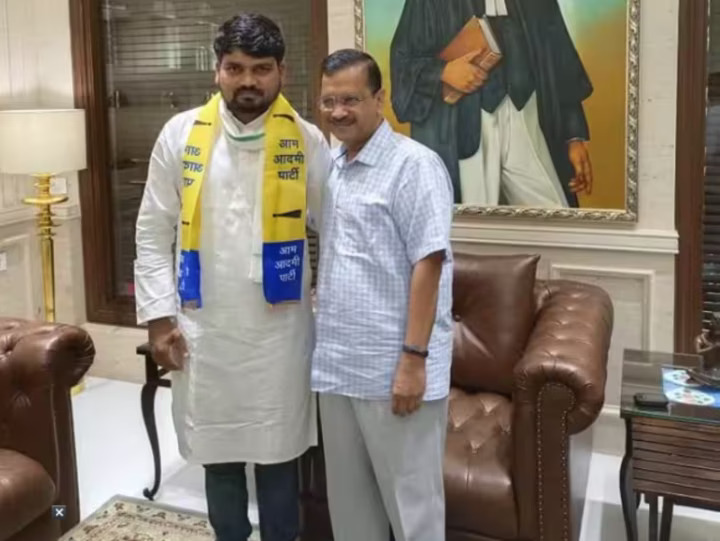Chaitar Vasava, a prominent leader of the Aam Aadmi Party (AAP) in Gujarat, has voiced strong opposition to the Bharatiya Janata Party’s (BJP) proposal for a Uniform Civil Code (UCC). Vasava raised concerns about the potential impact of the UCC on religious minorities and tribal communities, asserting the need to protect their unique cultural and social practices.
The BJP-led government’s recent announcement regarding the formulation of a UCC has garnered mixed reactions from various political quarters. While proponents argue for a unified civil code to promote equality and gender justice, critics like Chaitar Vasava express reservations about the potential infringement on diverse cultural practices and religious rights.
Chaitar Vasava, a prominent leader representing tribal communities in Gujarat, has emphasized the significance of safeguarding the customs, traditions, and beliefs of religious minorities and tribal groups. He argues that any attempt to impose a uniform civil code must respect the diversity of India’s multicultural society, ensuring that unique cultural identities are not eroded in the process.
Vasava stated that tribal communities have preserved their distinct customs and social practices for generations, which are deeply intertwined with their cultural heritage. He called for a comprehensive dialogue with all stakeholders to address the concerns of religious and tribal communities before implementing any changes to civil laws.
The UCC has been a subject of debate and discussion for decades, with opinions varying across political ideologies. Critics argue that a one-size-fits-all approach may lead to cultural homogenization and marginalization of diverse identities, while supporters maintain that it is necessary for gender equality and to eliminate discriminatory practices in personal laws.
Chaitar Vasava’s opposition to the UCC proposal reflects the growing sentiment among leaders representing minority and tribal communities who seek a balanced approach that respects India’s diverse cultural fabric.
As the discussions around the UCC continue, political parties, including the AAP, are closely scrutinizing the government’s approach and advocating for inclusive and sensitive measures that uphold the principles of social justice and cultural diversity.
The debate surrounding the UCC highlights the complex interplay between personal laws, cultural identities, and constitutional principles. As Gujarat AAP leader Chaitar Vasava raises pertinent concerns about the proposed UCC, the need for thoughtful and inclusive discussions to address diverse perspectives becomes increasingly evident.
The implementation of a Uniform Civil Code is a nuanced and multifaceted issue that requires comprehensive engagement with all sections of society to ensure a balanced and inclusive outcome that upholds both gender justice and cultural diversity.










